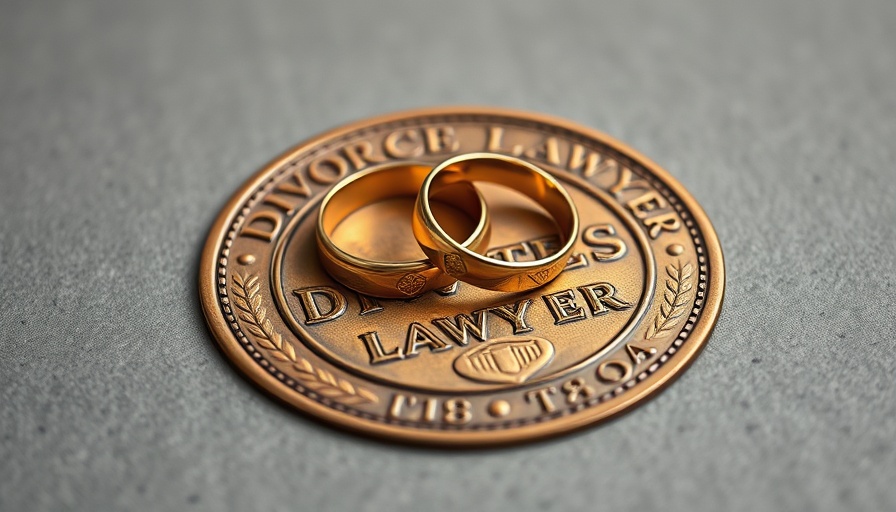
Understanding the Need for Prenuptial Agreements
In the vibrant professional world of Chicago, where attorneys and doctors often marry fellow professionals, the importance of a prenuptial agreement transcends mere financial planning. These agreements reflect a sophisticated understanding of the complexities inherent in modern marriages, particularly among high-earning individuals.
More than just a safeguard for existing wealth, a prenup for professionals serves vital purposes in planning for the future, especially for those entering a second marriage, starting a private practice, or achieving significant career milestones early in life. Such foresight can ensure that individuals retain their financial autonomy while fostering clarity and cooperation between partners.
The Unique Financial Landscape of Doctors and Lawyers
Professionals in medicine and law often begin their unions with a host of financial obligations, far beyond standard household debts. They may bring large student loans, growing private practices, or high-earning potential to the marriage. This situation makes a prenuptial agreement an essential tool for determining the classification and management of finances should the couple face a divorce.
In Illinois, where the laws about property division can lead to unpredictable outcomes, a prenup does much more than collect dust; it asserts property rights and expectations. According to the Illinois Uniform Premarital Agreement Act, these agreements must be comprehensive and thoughtfully constructed to be considered valid in a court of law.
What Professionals Should Include in Their Prenups
A well-crafted prenuptial agreement should clearly outline the nature and classification of assets owned individually before the marriage versus those that will be combined during the marriage. Professionals may want to consider special provisions that address complex income and asset classes, such as stock options, retirements, and business interests.
For physicians, protecting ownership in a medical group or the future value of their practice becomes paramount. Lawyers may need to consider how to manage the ownership interests in firms and client fees while ensuring both partners' financial futures are considered.
The Legal Framework of Prenuptial Agreements in Illinois
The foundation of any prenuptial agreement lies within the legal frameworks that govern them. Under the Illinois Uniform Premarital Agreement Act, critical elements contribute to the validity of these agreements:
- Written and Signed: Verbal agreements hold no weight; only written contracts protect parties in a court of law.
- Voluntary Entry: Both parties must enter the agreement without coercion, ensuring transparency and fairness.
- Full Disclosure: An honest accounting of assets, income, and liabilities is mandatory; non-disclosure can void the prenup.
- No Unconscionable Terms: Courts may strike down any provisions deemed grossly unfair at the time of divorce.
- Child Support Limitations: Agreements cannot diminish rights related to child support or responsibilities.
Common Misunderstandings about Prenuptial Agreements
Despite their rising popularity, many individuals harbor misconceptions about prenuptial agreements. Some view them as unromantic or assuming that marriage will fail, failing to recognize that prenups can act as tools promoting transparency and mutual respect between partners.
Experts argue that entering a marriage without a prenup could lead to complications and disputes that could otherwise be avoided. Not discussing finances openly before tying the knot can lead to misunderstandings that could fester over time.
Future Trends in Prenuptial Agreements
As societal norms evolve, an increasing number of couples in the professional realm are likely to consider prenuptial agreements in their planning. The shift towards recognizing the value of financial independence within a marriage and the growing complexity of assets indicate a trend towards proactive solutions in marriage contracts.
The formation of prenuptial agreements is on the rise as more couples come to understand that such arrangements do not foster distrust but rather lay the groundwork for open communication about finances and future goals.
Conclusion
For professionals in Chicago, prenuptial agreements serve dual purposes that extend beyond just financial protection—they encourage dialogue about important matters and lay a foundation for mutual respect. Understanding the nuances of these agreements can help navigate the realities of modern marriage. In a city bustling with professional achievers, addressing these complexities through a well-crafted prenup can make all the difference.
 Add Row
Add Row  Add
Add 




Write A Comment